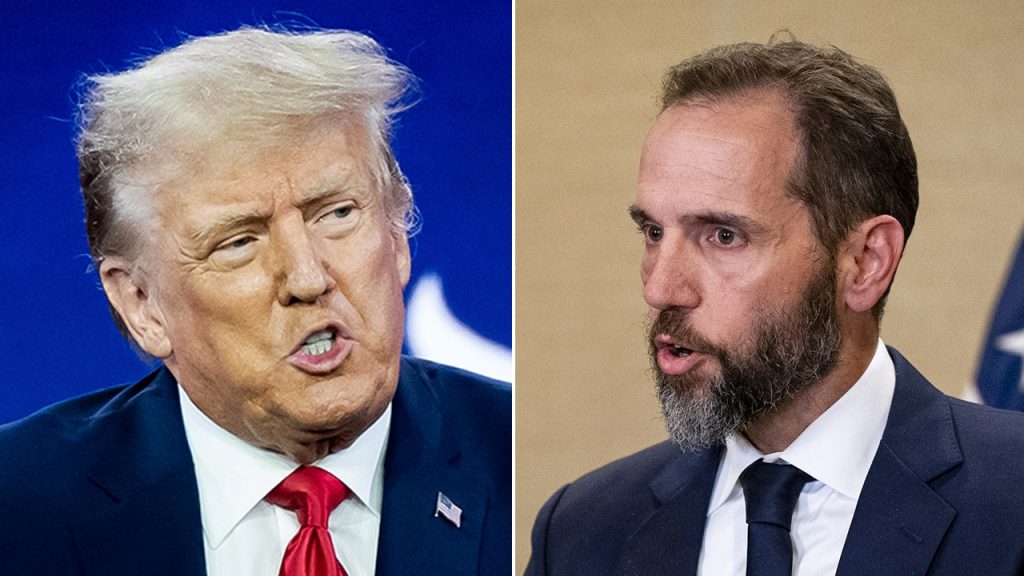The second day of hearings in the case involving former President Trump’s classified documents in Florida focused on two key issues: the funding of the special counsel, Jack Smith, and the potential addition of a provision to limit Trump’s speech about the raid on his Mar-a-Lago estate. Trump’s defense attorney, Emil Bove, argued that Smith was being unlawfully funded and operating on an infinite budget, raising concerns about separation of powers. The prosecution, led by DOJ prosecutor James Pearce, defended the funding, citing legal precedent for similar appropriations to other special counsels.
U.S. District Judge Aileen Cannon questioned Pearce on the legality of the special counsel’s funding, pointing out that nearly $9 million had been spent on the case in a matter of months. Pearce argued that even if the funds were deemed unlawful, it should not result in the dismissal of the case, as Trump’s defense had suggested. The judge’s ruling on this matter could have broader implications for future cases involving special counsels and their funding. The hearings also addressed a potential informal and limited gag order on Trump in relation to his remarks about the FBI agents involved in the Mar-a-Lago raid.
The prosecution sought the speech restriction due to concerns that Trump’s statements could endanger law enforcement officers. Trump had made remarks suggesting that FBI agents were ready to take him out during the raid, prompting the prosecution to argue that his comments could incite violence. The defense countered by stating that Trump’s comments were directed at President Biden rather than law enforcement officials. The judge, Aileen Cannon, questioned the prosecution about the person responsible for making the names of FBI agents public, but they did not provide a clear answer.
The defense argued that the proposed speech restriction was too vague and that Trump’s remarks were not directed at law enforcement officers. The court proceedings included moments of tension, with the judge reprimanding the prosecution for their tone and reminding them to adhere to the court’s decorum. The hearings concluded with a sealed hearing scheduled for the following day, indicating that there were sensitive matters to be discussed in private. Overall, the proceedings highlighted the contentious nature of the case and the complex legal issues at play.
The case involving former President Trump’s classified documents in Florida continued with hearings on funding for the special counsel and potential speech restrictions. The defense and prosecution presented arguments on the legality of the special counsel’s funding, with the defense claiming it was unlawful and raised separation of powers issues. The prosecution defended the funding, citing legal precedent and arguing that even if the funds were deemed unlawful, it should not result in the case being dismissed. The judge’s ruling on this matter could have broader implications for future cases involving special counsels.
The hearings also addressed a potential gag order on Trump in relation to his remarks about the FBI agents involved in the Mar-a-Lago raid. The prosecution argued that Trump’s comments could endanger law enforcement officers, while the defense contended that his remarks were directed at President Biden rather than law enforcement officials. Tensions arose during the proceedings, with the judge reprimanding the prosecution for their tone and reminding them to adhere to the court’s decorum. The hearings concluded with a sealed hearing scheduled for the following day, indicating that there were sensitive matters to be discussed privately.













